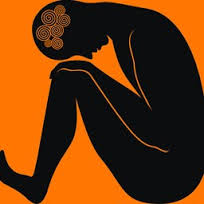What Diane Schuler’s story can tell us about emotional honesty and acceptance
You may or may not remember this story from 2009. Diane Schuler, a mother and aunt with her children and her sister’s children in a min-van, goes the wrong way on the Taconic Parkway in Westchester county and plows into an SUV head-on killing three in the SUV and 4 children and herself in the mini-van. Toxicology reports showed she had a blood alcohol level of .19 over twice the legal limit of .08. She also reportedly smoked marijuana and had several ounces of undigested alcohol in her stomach. Here’s an article that analyses the NY Magazine article about her husband Daniel Schuler. This analysis from Jezebel.com, points out the problems, isolation, secrets and tragedy that can exist when a spouse is unable to communicate his/her emotional pains.
Diane Schuler’s Story Is One Of Isolation, Denial, And Rage
Anna NorthOne of the saddest news stories of the summer just got sadder — the husband of Diane Schuler, whose wrong-way drunk-driving crash killed her and seven others, tells New York Magazine he still believes his wife was essentially perfect.
New York’s Steve Fishman tells a depressing tale of denial and rage. On one side is the bereaved Schuler, struggling to go on after the death of his wife and daughter, and on the other is the Bastardi family, two of whose members were killed when Diane Schuler’s Winstar struck their TrailBlazer. Mike Bastardi lost his father, Michael Sr., and his brother Guy, and is angry at the whole Schuler family for what he sees as their role in the accident. He says, “They make like it was not even their fault. I think they knew she was drunk and stoned.” Bastardi’s wife Jeanne is even harsher. She says, “Not even a second have I felt sorry for Danny. This becomes a man you can’t hate enough.”
Part of the reason the Bastardis are so angry with Schuler is that he won’t own up to his wife’s guilt. After the crash, he said at a press conference, “She did not drink. She is not an alcoholic. My heart is rested every night. Something medically had to have happened.” He’s stuck to this story ever since, hiring a private investigator and a lawyer who speculated that a small stroke or abscess might have caused her to suddenly lose judgment and down ten shots of vodka before getting behind the wheel. Not only was his wife not an addict, he says, she was nearly flawless. Though he spoke to the investigator about “ups and downs” in his marriage,” he told Fishman, “There were never any downs. Up for twelve years.” He says they were “perfect” for each other, she was an “outstanding” mom, and, tellingly, “She never complained. I do; she doesn’t.”
Diane Schuler’s friends also portray her as keeping her feelings — especially negative ones — to herself. One says, “I’ve never seen her mad or angry,” another, “she infrequently talked about personal feelings.” She never talked about her parents’ divorce, and refused to speak to her mother — some friends even thought her mother was dead. When Fishman asked Danny “how well he really knew” his wife, Danny answered, “She’d talk to me if things came up.” His examples: “The house needs painting, the gutters need to be cleaned.”
To hear Fishman tell it, the Schulers’ story seemed like a long, drawn-out, and bloody example of the consequences of secrets in a marriage. Did Diane Schuler feel pressured to be the perfect mom — Danny mentions her expertise with birthday cards and holiday decorations — and thus keep her substance problems to herself? Did she feel she couldn’t confide in her husband because their work schedules meant they were rarely home at the same time? Did her parents’ divorce make her feel she couldn’t rock the boat in her own marriage? Why didn’t her friends know more about her troubles? Probably these questions will never be answered, but if there’s a tragic flaw in the whole Schuler saga, it’s isolation.
Despite her supposedly close-knit family, Diane Schuler apparently kept herself hidden from everyone. This led not only to her death and the deaths of seven others — it also plunged her husband into denial and the surviving Bastardi’s into fruitless anger. They won’t be satisfied until he admits guilt; he won’t be satisfied until he proves his wife was blameless. It’s hard to know how much of this cycle of despair was caused by Diane Schuler’s own particular pathology, and how much by an American idea of marriage that often positions the spouse as sole confidant even when, as was the case with the Schulers, that spouse may be physically unavailable. Only one thing is clear: if Schuler had felt able to open up about her own life, she might have avoided destroying countless others.


